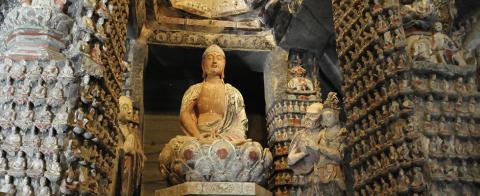The future of the past will come alive at the eighth Global Colloquium of University Presidents hosted by Yale University on April 12-13, 2016, and a series of related public events from April 6-15, 2016.
“We want future leaders to appreciate the importance of cultural heritage and to pitch in to protect it,” Yale President Peter Salovey has said in discussing why he chose the preservation of cultural heritage as the focus for the colloquium itself, a meeting of university presidents and faculty from around the world on behalf of and with the support and participation of United Nations Secretary-General Ban Ki-moon.
The preservation of cultural heritage is a growing global priority, given that cultural heritage is central to the identities of individuals and societies. Cultural heritage is under threat like never before from global challenges including climate change, terrorism, and mass tourism. President Salovey and colleagues across Yale hope that people across campus and the public beyond will take the opportunity to learn more and consider the roles they can play in moving the preservation of cultural heritage forward.
In order to allow everyone to participate and #unite4heritage, Yale and local partners are hosting a series of satellite workshops, tours, talks, and exhibitions open to all to coincide with the focused colloquium meetings for invited participants.
You are invited to explore this website to learn more about cultural heritage, to make plans to participate in the public events, and to read about the colloquium. As partners with leaders in the public sector and other NGOs, universities have a vital role to play in the growing global movement to “#unite4heritage” through their roles of teaching, research, conservation, and public outreach. Yale looks forward to hosting Secretary General Ban Ki-moon at Sprague Hall on Tuesday, April 12 to open the UNGC; to the meetings on April 13 with a community of scholars from peer universities around the world hosted at the Institute for the Preservation of Cultural Heritage; and to welcoming the public for many related events before and beyond the colloquium.
